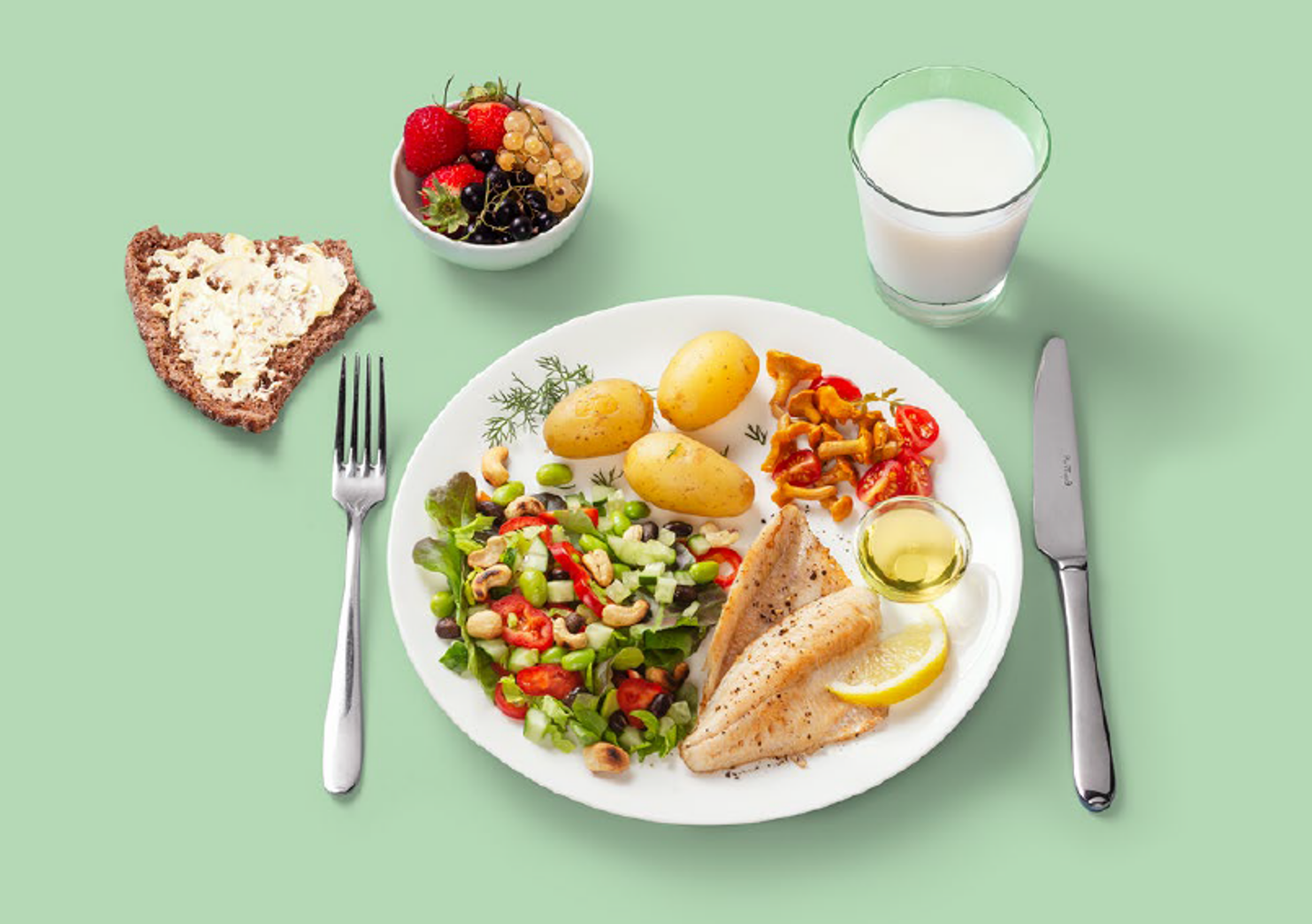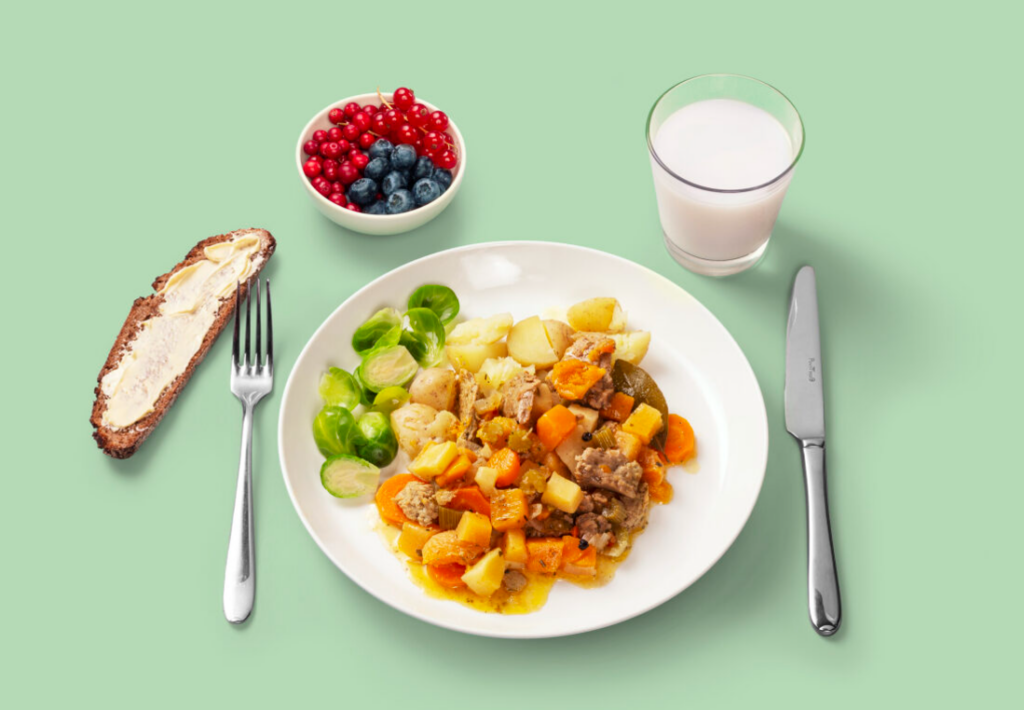An adequate intake of energy means that you get enough energy to carry through everyday life tasks. Weight remains stable when energy intake is in relation to consumption. Energy requirements are individual and influenced by factors such as gender and the amount of physical activity.
Energy requirements
The largest proportion of energy is used for breathing and other vital functions. Even if you just sit on a chair, you consume at least one kilocalorie per kilogram of body weight per hour. For example, a person at rest at 70 kg consumes about 70 kilocalories per hour.
Energy is needed for the heart to beat, for the brain to think, for the food to be absorbed, and for you to stay warm. In exercise and everyday activities, your energy demand may increase several times compared to rest. The average daily energy requirement for girls aged 15 to 18 is 2,200 calories (1500 to 2700 kcal) and for boys 2,700 calories (1600 to 3,600 kcal).
The Plate Model
You get a sufficient amount of energy when the size and content of your meals are balanced. The plate model is a good tool when putting together a meal:
- 1⁄2 of the plate: vegetables (e.g. grated, salad or warm vegetables with vegetable oil based salad dressing)
- ¼ of the plate: potatoes, whole-grain pasta or rice, or other whole-grain products
- ¼ of the plate: meat, fish, eggs or plant-based food such as legumes, seeds or nuts
- Fat-free milk or buttermilk is recommended as a drink at meals, and water is recommended as a drink whenever feeling thirsty.
- In addition, you should grab a slice of whole-grain bread with a vegetable oil spread with the meal, as well as berries or fruit for dessert.

Source: The Finnish nutrition recommendations 2014, National Nutrition Council.

Source: The Finnish nutrition recommendations 2014, National Nutrition Council.
